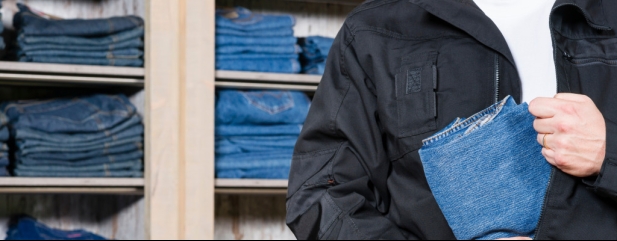Archived article
Please note that tax, investment, pension and ISA rules can change and the information and any views contained in this article may now be inaccurate.
How shoplifting and organised crime is shrinking retail profits

The cost-of-living crisis has left many of us wrestling with tight budgets. Difficult choices have had to be made and people have had to do without, not just things they want but also things they need.
Amidst that backdrop retail crime has risen considerably with thefts up by 27% across 10 of the UK’s largest cities and even higher in some according to figures from the British Retail Consortium.
It’s not just shoplifting; incidents of violence and abuse have nearly doubled from where they were pre-pandemic and organised theft, where gangs steal to order, is becoming a huge issue for retailers big and small.
John Lewis made headlines recently when it began offering free hot drinks to police officers, with the company’s head of security Nick Juniper noting that just having a police car parked outside ‘can make people think twice’.
Protecting staff has become a massive concern and bosses from both the John Lewis Partnership and the Co-op have written to the Home Secretary calling for tougher action on repeat offenders.
In the US retail crime has been labelled an epidemic with Target (TGT:NYSE) warning it expected to lose hundreds of millions to what it calls ‘shrink’ over this financial year.
Shrink covers a multitude of sins, from breakages to shoplifting, but basically, it’s the difference between the goods that should be there and what’s actually there.
More corporate earnings updates mention the issue and shareholders are now having to factor it into their own decision-making.
When Dick’s Sporting Goods (DKS:NYSE) blamed the issue for a near-25% slump in second quarter profits, its share price plummeted and chief executive Lauren Hobart said, ‘the impact of theft on our shrink was meaningful’.
JD Sports’ (JD.) tactic of only displaying one shoe is a clever deterrent, but social media was full of pictures showing a sea of police gathered outside its flagship London Oxford Street site at the beginning of August as a ‘mass shoplifting event’ singled out the store, an event that had already set nerves on edge.
Retailers are spending additional cash on security staff, upgrading anti-theft measures and having more staff visible on the shop floor. But organised gangs in particular are determined and the level of violence being deployed is deeply concerning.
Easing inflation should help consumer confidence and a resilient jobs market should mean more people have the means to purchase what they need and some of what they want without having to resort to the black market.
But retailers, particularly smaller ones, are often seen as a soft target and with a vast online marketplace for goods to be potentially resold it’s something that’s becoming an increasingly big deal.
Important information:
These articles are provided by Shares magazine which is published by AJ Bell Media, a part of AJ Bell. Shares is not written by AJ Bell.
Shares is provided for your general information and use and is not a personal recommendation to invest. It is not intended to be relied upon by you in making or not making any investment decisions. The investments referred to in these articles will not be suitable for all investors. If in doubt please seek appropriate independent financial advice.
Investors acting on the information in these articles do so at their own risk and AJ Bell Media and its staff do not accept liability for losses suffered by investors as a result of their investment decisions.
Issue contents
Book reviews
Exchange-Traded Funds
Feature
Funds
Great Ideas
News
- Discover the reasons behind these three retail share price jitters
- Darktrace investment case strengthening, claims analyst
- August hasn’t been kind to stocks but investors find a silver lining
- Moderna shares surge on cancer venture and Biden booster plan
- Asset manager Abrdn is having a tough time on the stock market
 magazine
magazine








